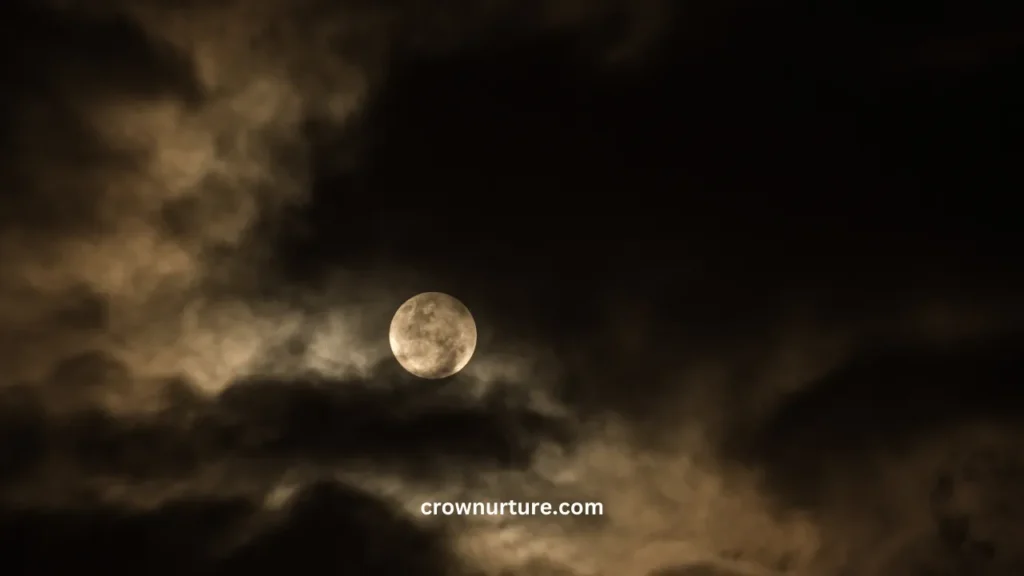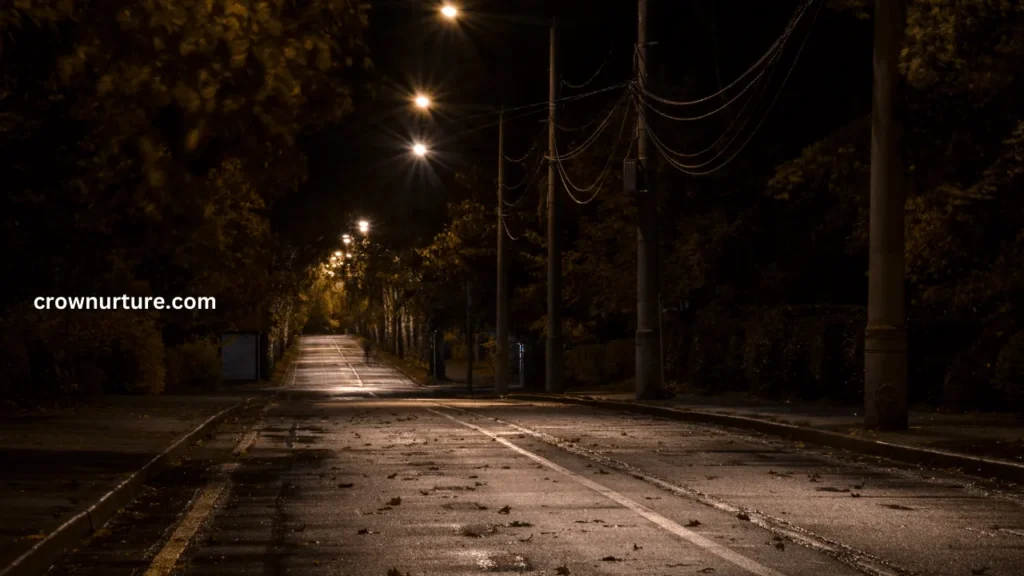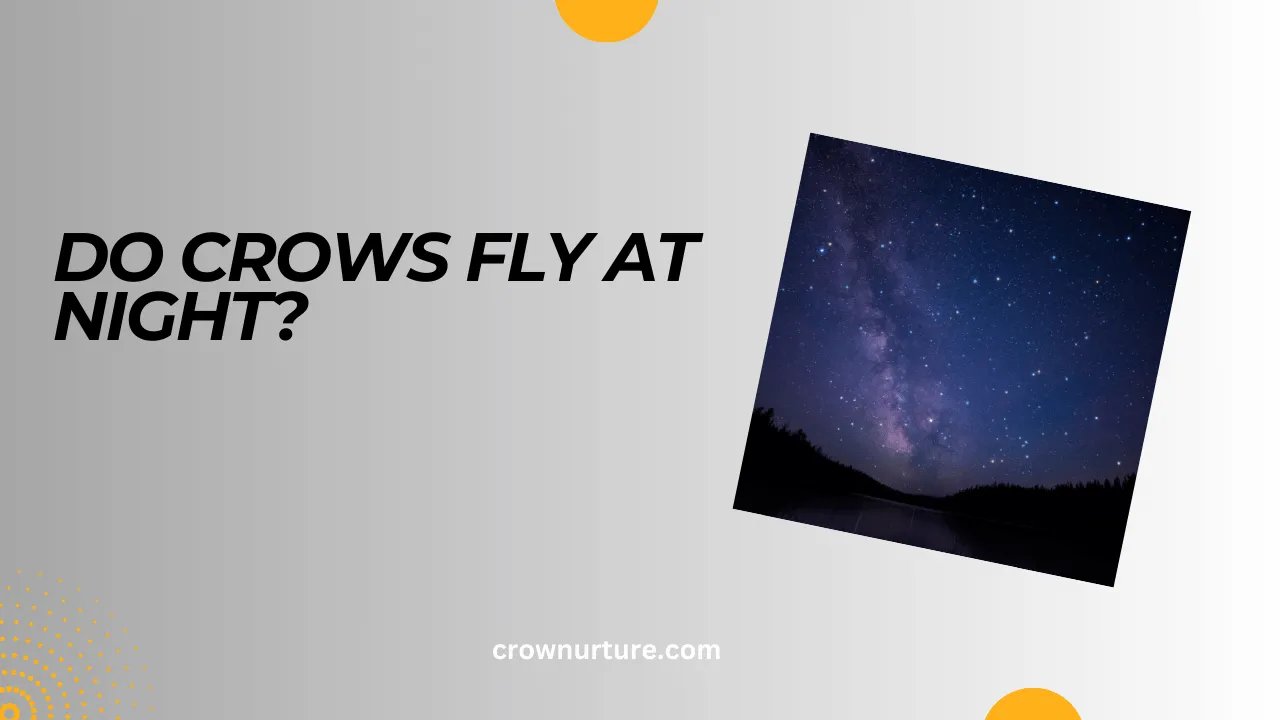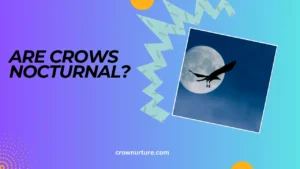Have you ever noticed a flock of crows soaring across the dim sky just as night falls? This intriguing sight often leaves people wondering: Do crows fly at night, and if so, why?
These intelligent birds are known for their complex behavior and adaptability, but their nocturnal habits remain a mystery to many. Crows are typically active during the day, but they don’t completely disappear when the sun sets.
Whether it’s traveling to communal roosts, responding to environmental factors, or navigating urban landscapes, crows have their reasons for flying at night. This fascinating behavior offers insights into their adaptability, intelligence, and ability to thrive in diverse environments.
Understanding why and how crows fly at night is not just an academic curiosity—it’s a glimpse into the intricate dynamics of nature. From their communal roosting rituals to their remarkable navigational skills, uncovering the truth about nighttime crow flights can deepen our appreciation for these extraordinary birds.

Contents
1. Nocturnal Flights and Roosting Behavior
- Communal Roosting:
Crows often gather in large groups to roost at night, a behavior known as communal roosting. These gatherings can include thousands of birds and are a survival strategy. - Roosting Sites:
Typical roosts are located in dense woodlands, tall trees, or even urban areas, offering shelter and safety from predators. - Evening Flights:
At dusk, crows can be seen flying in from all directions to converge on their roosting sites, creating a spectacular and noisy display.
2. Factors Influencing Nighttime Flight
- Food Availability:
If food is scarce during the day, crows may fly at night to scavenge in areas not accessible earlier. - Predation Risk:
Roosting in large groups helps crows reduce the risk of predator attacks, as there’s safety in numbers. - Weather Conditions:
Unfavorable conditions like strong winds or storms may force crows to adjust their flight schedules, even flying at night. - Breeding Season:
During the breeding season, crows may be more active at night for courtship and nest protection.

- Cognitive Skills:
Crows are incredibly smart, with excellent memory and spatial awareness, allowing them to navigate efficiently, even in low light. - Night Vision:
While not as sharp as their daytime vision, crows’ eyesight is good enough to detect obstacles and reach roosting sites safely at night. - Celestial Navigation:
Researchers believe that crows may use celestial cues, like the moon and stars, to aid in nighttime navigation.
4. Human Interactions
- Urban Roosting:
In cities, crow roosts can become a nuisance, causing noise complaints and sanitation issues from droppings. - Human-Wildlife Conflict:
Efforts to manage crow roosts include habitat modifications, noise deterrents, and lights to discourage overnight gatherings. - Citizen Science:
Observing and reporting crow roosts through citizen science projects can help researchers better understand their behavior and impact.
5. The Role of Nighttime Flights in Ecosystems
- Ecosystem Balance:
By flying to different areas at night, crows contribute to seed dispersal, pest control, and nutrient cycling in their habitats. - Social Bonds:
Night flights to communal roosts strengthen social bonds and communication among crows, enhancing their survival strategies. - Adaptability:
The ability to fly at night highlights their remarkable adaptability, a key reason why crows thrive in both rural and urban environments.
Conclusion
Crows do fly at night, and this behavior reflects their intelligence, adaptability, and survival strategies. From communal roosting rituals to nighttime scavenging, their nocturnal flights reveal a side of their lives that is as fascinating as their daytime activities.
Understanding crow behavior isn’t just about solving a mystery—it’s about recognizing their role in the ecosystem and finding ways to coexist. Whether they’re dispersing seeds, controlling pests, or navigating urban environments, crows are vital contributors to nature’s balance.
So, the next time you spot crows flying at dusk or hear their calls after dark, take a moment to appreciate the intelligence and social complexity of these remarkable birds. They remind us that the world of nature is full of surprises waiting to be discovered.
FAQs
1. Do crows fly at night?
Yes, crows fly at night, especially when traveling to roosting sites or searching for food.
2. Why do crows fly at night?
Crows fly at night for reasons like reaching communal roosts, scavenging for food, or avoiding predators.
3. Are crows nocturnal birds?
No, crows are not strictly nocturnal, but they are active at night when needed.
4. Do crows have good night vision?
While not as sharp as daytime vision, crows’ night vision is adequate for navigating in low light.
5. Where do crows go at night?
Crows gather at communal roosting sites such as trees in forests, urban parks, or near buildings.
6. Do crows sleep at night?
Yes, crows sleep at night, typically in large groups for safety and warmth.








